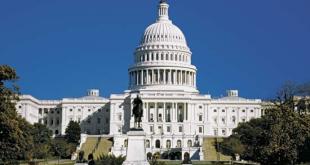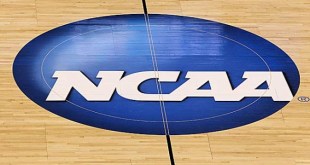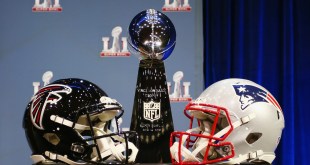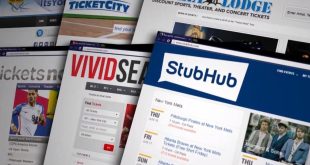Since Judge Berman exonerated Tom Brady in September, the Patriots have done much to put Deflategate behind them, charging out to an AFC-best 11-2 record. But the case is far from over and the stakes in the appeal are just as high. Let’s take a look at where the case stands on appeal.
How We Got Here
On September 3, 2015, Judge Berman issued his decision vacating Roger Goodell’s punishment of Brady. Although Berman declined to rule on a few issues, his decision was a victory for Brady, ruling in favor of the future Hall of Fame quarterback on every issue that was discussed in the decision. Essentially, Berman’s decision ruled that Brady’s punishment was premised on “significant legal deficiencies” and that Goodell “dispensed his own brand of industrial justice.” He found that Brady did not receive proper notice of his punishment and that the process by which Goodell reached his decision was fundamentally unfair.
On the same day as Berman’s decision, the NFL filed its Notice of Appeal to the Second Circuit. Two weeks later, on September 17, 2015, the NFL filed its Pre-Argument Statement.[1] One week later, the NFL and NFLPA submitted a consent motion to the Second Circuit, in which they both requested an expedited appeal. The Second Circuit granted the expedited appeal and set a briefing schedule. The NFL filed its opening brief on October 26, 2015, and the NFLPA responded on December 7, 2015
The Arguments on Appeal
The issues on appeal can be broadly divided into three arguments:that Brady did not have adequate notice; Goodell’s procedural rulings were fundamentally unfair; and issues left undecided by Judge Berman.
The first, and most significant argument is about notice, namely what kind of notice the CBA requires and whether Brady received sufficient notice. Although the NFL concedes that players must be afforded notice of potential punishment before being punished, its conception of notice is much different from the NFLPA’s conception of notice. The NFL argued that Brady had notice of Goodell’s power to punish any conduct he deems detrimental to the league, which was sufficient to satisfy the requirement of fair notice.
The NFL’s argument ignored Judge Berman’s determination that the specific punishment of a fine prescribed by the equipment policy was applicable over the general conduct detrimental power. Instead, the league argues that Goodell could choose to interpret Brady’s actions as conduct detrimental and therefore the punishment was within his discretion. The NFL also argues that Brady committed more than an equipment violation by participating in a scheme against the rules and refusing to cooperate with the investigation.
The NFLPA concedes that the Commissioner has broad power under the CBA and that arbitrators can interpret the law of the shop (in this case past court and arbitral rulings), but insists that arbitrators may not issue decisions that ignore the essence of the CBA. The NFLPA argues that the logical extension of the NFL’s argument makes no sense. If one were to give credence to the notion that Goodell can choose to ignore specific, collectively bargained policies merely by judging actions covered by such policies to be conduct detrimental, it defeats the whole purpose of the CBA and collectively bargained penalties. The NFLPA claims this is the antithesis of the CBA, not its essence.
The argument about specific vs. general provisions in the CBA is not the only aspect of the notice issue, which is much more nuanced and involves several other arguments from the NFLPA. For example, the NFLPA argues Brady had no notice that he could be disciplined for being aware of others’ misconduct, no notice that he would be suspended for a first-time equipment violation, no notice that he could be punished similarly to PED violations, and no notice that he could be punished for failing to turn over his phone. But the question of Goodell’s discretionary authority in choosing which provisions of the CBA to apply and whether his conduct detrimental power trumps other provisions of the CBA is at the heart of the notice issue and the one both parties are likely most concerned about.
The second argument is about fundamental fairness, namely whether Goodell’s procedural rulings provided Brady a fundamentally fair hearing during his arbitration. The two rulings at issue were Goodell’s decision to prevent the NFLPA from hearing testimony from NFL General Counsel Jeff Pash and the decision to prevent the NFLPA from accessing the investigative files of the Paul, Weiss law firm used in creating the Wells Report.
The NFL argues that the investigation files are protected under the work product doctrine and would not be discoverable, which is the same argument the league made before Judge Berman. The work product doctrine protects documents prepared by one party’s lawyer from being disclosed to the other party when the documents are prepared in anticipation of litigation. The league also argues that Goodell never relied on those files when making his decision. The NFLPA’s argument is that Goodell clearly relied on the Wells Report to make his decision, and the files were used to create the Wells Report. How can you rely on a final report without necessarily relying on the materials used to create that report? The union also argues that the files should not be considered work product because they were not prepared in anticipation of litigation but in preparation for a public report.
With respect to Pash’s testimony, the NFL reiterated the same argument – that Pash’s testimony would have been cumulative and that the NFLPA never asked Goodell to reverse his ruling excluding Pash’s testimony despite a willingness to revisit it. The Pash issue has not changed much since I detailed it back in August and predicted Berman would rule for Brady on it. The NFLPA continues to rely on Second Circuit precedent that the arbitrator must explain why he believes the testimony to be cumulative. Goodell could not do that in this case because he relied on Ted Wells’s testimony concerning Pash’s involvement and Wells had no idea what Pash’s involvement actually was. The NFLPA also points out that the decision to revisit the exclusion of Pash’s testimony was left for Goodell to revisit, not for the NFLPA to request, and that in any case the NFLPA did protest the exclusion in its post-hearing brief.
The third argument relates to issues that Berman did not decide in his decision. Berman explicitly declined to rule on a few arguments the NFLPA made, for example the question of whether Goodell was evidently partial and whether the league used fair and consistent methods to investigate and punish Brady. Should the Second Circuit decide to affirm Berman’s decision, these issues will be irrelevant to the case.
However, if the judges decide to reverse Berman’s decision, they will need to decide whether they want to remand the case to Berman to rule on these issues or to decide these issues themselves. The NFL argues that resolving the issues at the Second Circuit level best serves the interests of judicial economy because the issues are already fully briefed. Remanding the case would require another decision from Berman, likely followed by another appeal. With one favorable round before Judge Berman under its belt, the NFLPA obviously would prefer these issues to be remanded to him, hoping for another favorable result. The union’s first preference, however, would be for the Second Circuit to merely affirm Berman’s decision, rendering these issues moot.
What Have We Learned from the Briefs?
Not a lot has changed in how the two sides are approaching the case from how they argued before Berman. Both sides are still making the same arguments or variations of them. The interesting thing about the briefs is that the NFL continues to do a poor job of interacting with the NFLPA’s arguments.
The NFLPA made it a point to respond specifically to the NFL’s arguments, which is always helpful. For example, the NFL claimed that Goodell didn’t use the equipment policy to punish Brady because his conduct went beyond equipment issues (i.e. refusing to cooperate). However, the NFLPA responded that the non-cooperation is “inextricably intertwined” with the equipment violation because Goodell used Brady’s non-cooperation to draw an adverse inference about Brady’s participation in a ball-tampering (equipment-related) scheme. The NFLPA denied as “false” the NFL’s assertion that Brady’s attorneys were present for many of the interviews and had access to all of the Paul, Weiss documents used to prepare the Wells Report. The union also pushed back against the assertion that they did not contest Goodell’s ruling on Pash.
Meanwhile, the league mostly ignored the NFLPA’s specific points, preferring to stick to explaining its own arguments rather than rebutting the other side’s. The league chose to mostly ignore the Second Circuit precedent the NFLPA relied upon and presented to Judge Berman, as well as the prior “law of the shop” decisions the union pointed to. This is the same tactic they used in oral arguments before Berman to poor effect. Although the judges won’t give special credence to the NFLPA’s arguments merely because the NFL did not respond to them, it is surprising to see that the league did not want to give help the Second Circuit much should it decide to reverse Berman’s decision and rule against Brady.
Overall, the NFLPA’s brief was stronger than the NFL’s. NFLPA attorney Jeffrey Kessler framed the issues well, directly addressed the NFL’s arguments and relied on directly applicable legal precedent. The NFL’s brief was stronger and more polished than what we saw at the district court level, and we did see a bit more pushback against the NFLPA than we did before Judge Berman. On the whole, however, the league seems to be going for an “ignorance is bliss” strategy concerning Second Circuit precedent and the NFLPA’s arguments.
What’s Next?
The NFL will file its reply brief on December 21, 2015, so we will get a chance to see how the NFL responds to the NFLPA’s brief before oral arguments. The panel of judges deciding the case will be announced on February 25, 2016, the Thursday before oral arguments. Who the judges are will likely have the biggest impact on how the case is decided, depending on whether the judges are more pro-management or pro-labor and how they view the issues in the case. The panel will likely be composed of any three of the twenty-three judges on the Second Circuit. Oral arguments are scheduled for March 3, 2016.
Despite being the underdogs, the NFL has an all-star legal team and still has an outside chance of winning the appeal, especially if the panel is majority pro-management judges. Paul Clement, whom the NFL brought on to handle the appeal, is one of the most formidable appellate attorneys in the country. But if the Second Circuit affirms Judge Berman and rules against the NFL again as seems likely, the league would be looking at a serious blow from an appellate court in its own backyard.
[1] Much has been made of the NFL’s many missteps in this case, and the Pre-Argument Statement was no exception. In the Statement, the league claimed that Berman used the incorrect legal standard by relying on the Federal Arbitration Act rather than the Labor Management Relations Act. In reality, the standard for vacating an arbitration award is “materially the same” under both laws, a point which the NFL later conceded in the first footnote of its opening appellate brief. The Sports Esquires Putting Sports on Trial
The Sports Esquires Putting Sports on Trial





NFL look like it not doing it job. N e and Brady will make jerks out NFL again if Brady win sb I will be done with football. I have been a fan for 60 years. NY Giants
Interesting to point out that the Patriots scored almost all of their points in the second half of the Colts game when we all know the balls were inflated properly. Maybe Colts would have been better off if they didn’t raise the issue at all. It’s all jealously and frustration that propels this nonsense forward. look at Pats record after Deflategate broke, with balls all inflated to regulation = super bowl win and 11/2 even with 75% of their starters sidelined with injuries. League is lucky the Pats starters were not at 100% otherwise it would have been back to back Super Bowls. Kinda makes your head hurt and upsets your stomach if not a Pats fan.